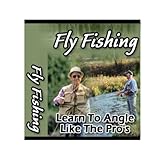One of the most important aspects of angling is being able to locate the fish. Knowing where they are allows you to introduce ground bait efficiently and place your hook bait where it will most likely catch fish. When fishing for pike it may be better to bring the fish closer to you.
Many pike anglers like distance techniques for pike. They will use extra strong gear not unlike heavy sea fishing beach rods that can cast big weights up to two hundred yards. Radio control floating craft are even used to take the ground bait to a distant hot spot and dump it there!
There is no doubt that this method will catch fish, but it does have the disadvantage of reducing your contact with the fish and your ability to feel or notice a take. Deep hooking a pike down its throat is most likely to happen when control over the end rig is least, as with long distance fishing. Deep throat hooked fish can starve to death, as the hooks and wire trace cannot be removed without damaging the delicate throat and stomach.
Striking a pike’s bite at just the right time is the way to prevent deep hooking down the throat. Control is a lot better when fishing 25 yards away than over 200.
Bringing the pike to you by pre-baiting the swim is also a good method to stimulate feeding response in sluggish pike during the winter months. If you introduce a ball of fish mash into a potential swim the pike will be attracted by the smell. Pungent fish oils can be mixed into the ground bait to increase their allure. The mixture can be made up in the comfort of your kitchen and frozen in soluble PVA bags. These will dissolve in water. This means that when you are ready to go fishing it is a simple and clean process of taking a few frozen ground baits with you. While still frozen they can be thrown into the swim and will slowly melt releasing the smelly oils.
Near fishing for pike means that you can strike immediately you feel the bait has been turned in the pike’s mouth, but before it swallows it. This prevents deep hooking. As you will have been using much lighter tackle you will likely have had a more enjoyable tussle with the pike.
Mark Jenner is a keen angler enjoying all aspects of the sport. He spends most of his time in pursuit of trout, pike or carp as well as occasionally doing some sea fishing. His web site reviews many items of game and carp fishing tackle and his blog site reviews general fishing subjects and records his pike fishing sessions.
